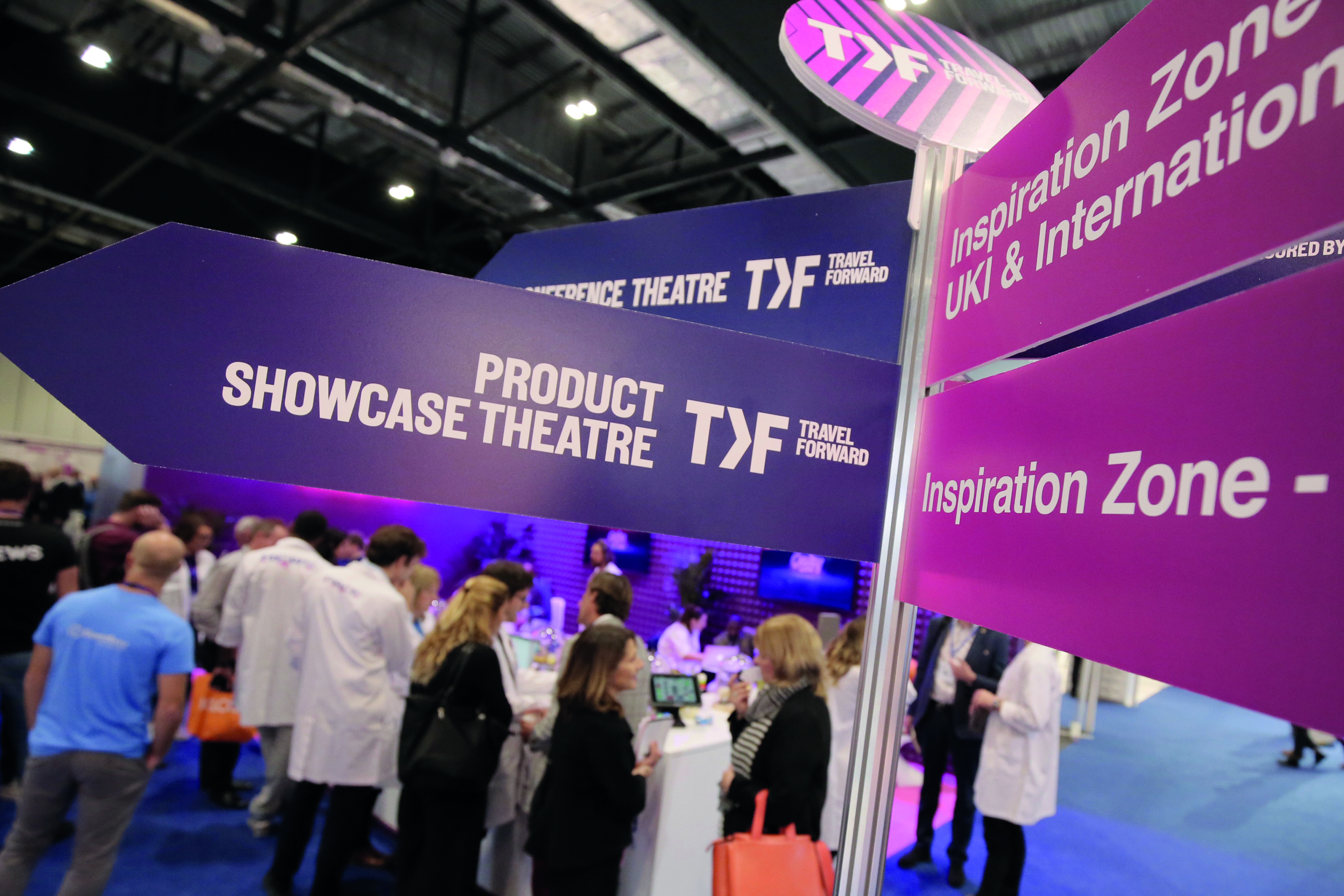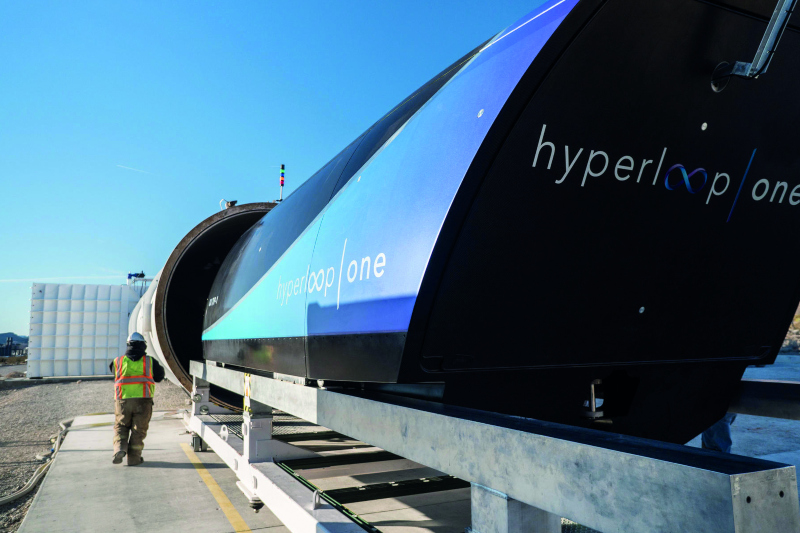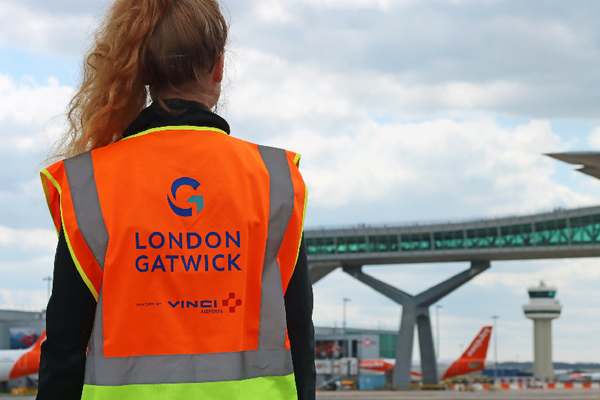The inside track on Travel Forward 2019
Travel Forward returns to WTM London for three days of innovation, networking and technology news.
Travel Forward is back for a second year (4-6 November), and it’s shaping up to be bigger and better than ever. The travel technology extravaganza, which runs in conjunction with WTM London, will welcome more than 250 tech providers and 7,000 travel executives to the ExCeL in London for talks, seminars and networking opportunities, designed to help travel businesses learn how the latest technology can help them stay ahead of the competition.
Hot topics slated for discussion include artificial intelligence (AI), machine learning, blockchain and the role of augmented reality (AR) before and during travel.
Event manager Richard Gayle says visitors can expect dynamism and interaction from this year’s conference. “From the inaugural event last year, we learnt that the audience was hungry for knowledge that would help them transform their organisations. This year, we are bringing in tools to ensure we can make all sessions as interactive as possible.”
Shaping the future
Gayle reveals that sessions will be full of practical tips and key takeaways.
“We are focused on the ‘so-what’ of new technology – its impact on providers, agents and brands, and how they can utilise [tech] to transform their business and make the most of new opportunities.”
Agent-relevant sessions include “The zero-friction customer journey”, where delegates will hear from Facebook and easyJet representatives about trends and insights demonstrating how efficiency can lead to business growth.
Meanwhile, Andrew van der Feltz, senior director for business development and advertising at Expedia, will examine the influence of Generation Alpha (those born after 2010) on family travel destinations, trip activities and the future of travel.
Gayle is particularly excited about a talk by Harj Dhaliwal, managing director for Virgin Hyperloop One, whose new tech is aimed at revolutionising travel transportation. Hyperloop One will allow passengers and cargo to travel in pods through a vacuum tube using electric propulsion and magnetic levitation, allowing for high speeds and reducing negative impact on the environment.
This year, Travel Forward will take on a “from disruption to delivery” theme, with four streams: digitisation, customer focus, infrastructure and data. The theme will address the impact of technology on the needs, aspirations and expectations of business and leisure travellers while offering clarity on disruptive tech solutions, says Gayle.
A partnership between Travel Forward and Winding Tree will see a #HackTravel hackathon debut this year, bringing together travel start-ups, airlines, hotels and software firms to tackle real-world industry “pain points” and make tech ideas a reality.
New kids on the block
Three tech exhibitors making their debut at Travel Forward 2019
HotelRunner (TT520)
A sales management platform and B2B network for travel agencies and accommodation and payment providers to find, contact, connect and transact with each other online at scale.
Nezasa (TT740)
A Swiss technology specialist offering software solutions for tour operators and travel agents to build personalised packages for their clients. Features include TripBooster, which engages with customers in-destination to sell them relevant tours and activities.
Vibe Systems (TT728)
Another home-grown tech provider, Vibe delivers front and mid-office systems to help travel companies that require online booking systems. Clients include OTAs, call centres, retail agencies, tour operators and airlines.
Data matters
Travel Forward 2019 sees new exhibitors already signed up for the event. One keen to make its mark is revenue management expert IDeaS (TT137).
Founded 30 years ago, IDeaS provides solutions to more than 10,000 clients in hospitality and travel using automation and analytics.
“Our main message is that in a world where hotels have to make approximately five million pricing decisions every year, a world-class client-centric organisation, coupled with an automated and integrated revenue management system, will make a business successful even in times of increasing uncertainty,” says Klaus Kohlmayr, chief evangelist at IDeaS.
Regarding areas of innovation, Kohlmayr recommends agents look at how they can leverage data to their advantage.
“Research shows that consumers want and expect highly relevant, experience-centred content instead of products. Data is being generated at unprecedented levels. The recent demise of Thomas Cook demonstrates that companies that do not invest in modern technology to transform data into a competitive advantage will not survive.
“In 2020, we will see more travel businesses adopt integrated, cloud-based platforms, that when infused with AI, automatically and dynamically turn data into decisions, which in turn will serve up the most relevant offers to clients. It’s time for system intelligence to do its work with minimal human interference.”
According to Kohlmayr, the biggest barrier that exists in travel is outdated legacy tech, which makes it costly and inefficient to exchange and sync data across systems.
“This hinders what I call ‘seamless intelligence’. Only recently have we seen the emergence of open application protocol interface (API)-driven approaches, a trend which will accelerate quickly and will force legacy technology providers to adopt if they want to succeed.”
Looking to the near future, Kohlmayr believes suppliers will be enriched by their use of data.
“Thousands of connected devices will seamlessly exchange data with each other and provide real-time insights, which will enable travel companies to provide unprecedented levels of service and engagement. Innovative companies like Carnival Cruises (with Princess Medallion) and Disney (with MagicBand) are leading the way in creating sophisticated, tech-enabled engagement and turning data into experiences,” he says.












